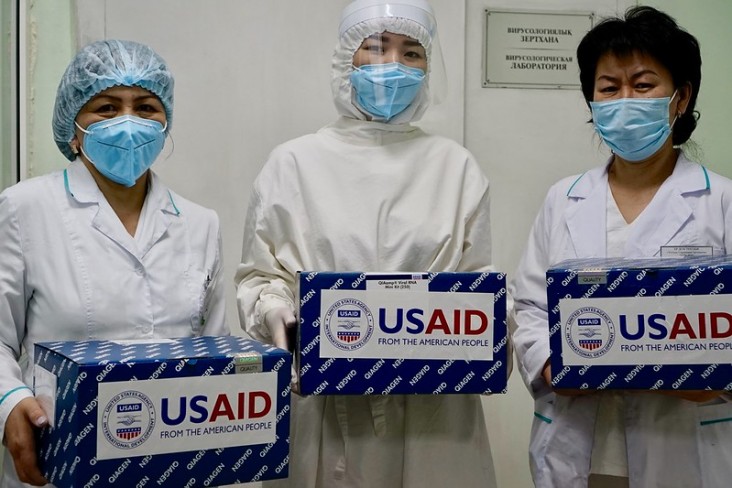You are viewing:
Archived Content
Information released online before January, 2021.
You are viewing:
Information released online before January, 2021.
Note: Content in this archive site is NOT UPDATED, and external links may not function. External links to other Internet sites should not be construed as an endorsement of the views contained therein.
You are entering the 2017-2020 Archive for the
United States Agency for International Development web site.
If you are looking for current information, visit www.usaid.gov.

Almaty, Kazakhstan —The United States through its Agency for International Development (USAID) in Kazakhstan, announced the procurement of essential laboratory equipment and supplies to support the Government of Kazakhstan’s response to the COVID-19 pandemic. The U.S. Government delivered supplies valued at $300,000 to support the COVID-19 emergency response in Kazakhstan through USAID’s Local Health System Sustainability Project.
“Access to accurate and rapid COVID-19 testing is critical in stopping the spread of the virus. We are working closely with the Government of Kazakhstan to protect the well-being and lives of everyone in Kazakhstan,” said William Moser, the U.S. Ambassador to Kazakhstan.
Chief among the materials delivered to the Kazakhstan Ministry of Health were laboratory reagents to support real time (reverse transcription–polymerase chain reaction) tests, one of the most accurate laboratory methods for detecting, tracking, and studying the severe acute respiratory syndrome coronavirus 2 (SARS-CoV-2) virus that causes COVID-19.
In partnership with the Government of Kazakhstan, USAID has identified priority areas for support and will continue procuring essential laboratory supplies through its Local Health System Sustainability Project. Additional laboratory supplies valued at over $2 million are expected to arrive throughout July - September 2020. USAID is collaborating with Kazakhstan health officials to identify the specific commodities needed, in accordance with Kazakhstan’s National Strategic Preparedness and Response Plan.
The U.S. Government has provided more than $5.7 million to assist with the COVID-19 response in Kazakhstan. This assistance addresses the immediate epidemic prevention, detection, and response needs in Kazakhstan while building on existing health system resilience strategies.
Comment
Make a general inquiry or suggest an improvement.